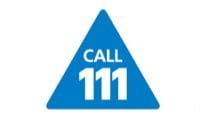Lessons learned from the NHS 111 pilots may be lost because of unrealistic deadlines for the roll-out of the urgent care service, NHS Direct has said.
In a statement to eHealth Insider, Nick Chapman, NHS Direct chief executive, said preliminary results from the formal pilots showed the new NHS 111 service is referring more patients for face to face care than existing services.
As a result, he said, “changes will probably be needed. This may include greater use of clinicians (nurses and doctors) to complete more in-depth clinical assessments on the telephone in order to avoid unnecessary referrals to GP surgeries, A&E and ambulance call outs."
NHS Direct, which is leading on four of the seven NHS 111 live pilots, believes the service does have the potential to make it easier for patients to access health advice, he added.
“However the results of the pilots need to be available before clinical commissioners commit to long-term contracts to deliver NHS 111 in their area.”
“It would be extremely worrying if the opportunity to learn from the pilots, and make appropriate changes, was lost because of unrealistic rollout deadlines.”
Chapman’s comments follow a call by the British Medical Association for the government to adopt a “flexible deadline” for the roll-out of the urgent care telephone number amid concerns about its procurement and progress.
Information sent to health secretary Andrew Lansley by the BMA outlines “serious misgivings” about the project, including the impact of “risk adverse call handlers” increasing the burden on ambulance services, A&E departments and GPs.
“We seek your assurance that the procurement of NHS 111 services will be slowed down, to allow for proper evaluation of the pilots,” the BMA says in its letter.
The government has set a deadline for local commissioners to have the service rolled out across England by April 2013.
Dr Paul Cundy, who is joint chairman of the BMA and RCGP’s joint IT committee, told EHI Primary Care this month that inappropriate referrals from NHS 111 meant people were being referred to their GP or A&E department when it was “completely unnecessary.”
“The feedback we are getting from out-of-hours services and GPs on the ground is that it’s increasing workload,” he said. Dr Cundy also said the best people to triage patients were GPs.
Public health minister Anne Milton said the government would consider the BMA’s concerns. “We agree that any long-term decision should be made with full approval from local commissioning groups,” she said.
“They should be fully engaged with the approach to delivering NHS 111." EHI understands the next NHS 111 pilots evaluation report by Sheffield University will not be released until at least April this year.

